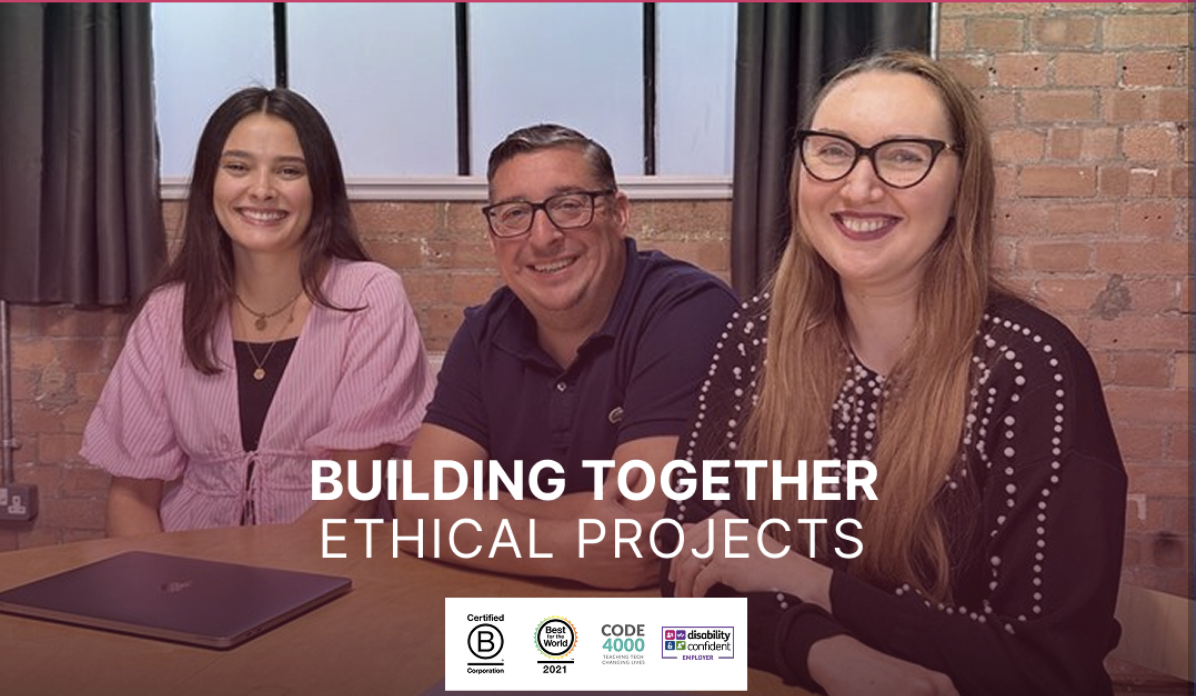Why is SEO important for charities?
Good SEO means that more people have the opportunity to come across your content, and therefore your charity. Done well, it can be an excellent tool for building your brand awareness and reputation, helping you reach new, quality audiences and compete with more established charities. It might seem like luck of the draw that certain charities rank higher than others, but there are lots of things you can do to increase your chances of securing a spot on the coveted first page of the search results.
Write for your audience(s)
This may sound obvious, but the content you create should have your primary users’ needs front and centre. It can be easy to get sidetracked by audiences who aren’t central to your charity’s strategic aims or that your competitors are successfully targeting, but this may dilute your content’s worth to your key users.
Search engines build a picture of how useful, interesting and valuable your content is by looking at a range of things like:
- Are people sharing your content on their own social media channels?
- Are people returning to your website?
- Are well-respected, useful websites linking to your website?
- Are people spending time on your website?
So what can you do to help make these things a reality?
- Write about topics that are relevant and interesting to your audience(s)
- Make your content as shareable as possible: make use of appropriate images, videos and quotes if possible, and keep things structured and easily digestible.
- Avoid click-bait traps: headlines are important to encourage click-through, but the content on the page must match the title.
If you’re struggling to define your audiences, you could consider creating user personas based on any existing knowledge you do have, or putting together a basic content strategy. These will help you focus on what kinds of content you should create – and why.
Decide which keywords you want to target
Keywords are simply the phrases or individual words in your content that help people find your website through search engines like Google.
There are two parts to figuring out which keywords you should focus on:
a) think about those keywords you want to rank for on search engine results pages. For example, if you’re a charity working to combat homelessness in London, you might pick keywords like:
- Helping the homeless in London
- Homeless charity London
If you’re a charity working in a crowded field, then it’s a good idea to start off by focusing on specific keywords relevant to your location or USP.
b) find out which keywords people are searching for when they find your website. For this, we recommend using the free Google Search Console tool to look at search query data (more on this below).
Once you’ve decided which keywords you’re going to focus on, you should make sure they feature in:
- The page title
- The page URL
- The page copy – 3x should be fine
- The image titles and alt text of any images used on the page
- The meta tags – especially the meta description – for the page
Make use of free tools
There are lots of SEO tools that can help you with your keyword research, but the following free tools are a good place to start:
Google trends – gives you a sense of the search volume (i.e. how much that keyword is searched) for the keyword you’re interested in targeting, as well as related terms and location information. At a very top-level, this can help you decide if it’s worth pursuing a certain keyword.
Google Search Console – use this to find out what queries (keywords) people are searching when your site appears in search results, and to analyse which of these lead to more clicks through to your site than others. You can also see which pages users clicked on when certain keywords appeared in search listings. You can then use these insights to tweak existing content to better target certain keywords or create new content targeting a particular keyword.
Keywordtool.io – a basic but useful tool that gives you keyword ideas.
Don’t let pages 404
Broken links (404 errors) are no fun for anyone. They frustrate users and search engines alike – neither of which is good for your rankings! If search engines see people arriving on your site only to leave again (bounce) immediately, it doesn’t reflect well on your site.
One way to combat this is to always set up 301 permanent redirects every time you delete a page, change a URL or merge pages together. If you skip this step then you’re setting yourself up for problems further down the line.
It’s worth putting a bit of thought into your redirects and trying to make them as useful as possible for people (and therefore search engines). Make sure you’re setting up redirects to the most relevant content possible. For example, if you’re deleting the page on a recent fundraising event, consider redirecting to a news article about the event, rather than to the main events listing. That way, you’re giving users content that is specifically related to what they were originally looking for – making them far more likely to stay on your site.
Check your site speed
People and search engines alike don’t like websites that load slowly! Make sure all your hard work researching keywords and writing great content doesn’t go to waste, and use Google Pagespeed Insights to regularly check how quickly your site is loading.
The report can get quite technical, so it’s worth sharing it with your developer team or agency. If you’re a smaller charity without access to either of these and you get a bad score, it could be worth contacting a freelance developer to get their help and advice.
Hopefully these tips will help to demystify SEO for your charity. We’d love to hear from you if you’ve given any of them a go, or would like more pointers on how to optimise your charity website. Just drop us an email on [email protected]


